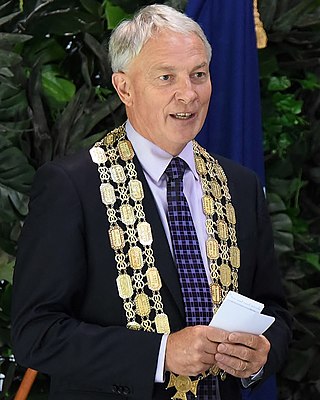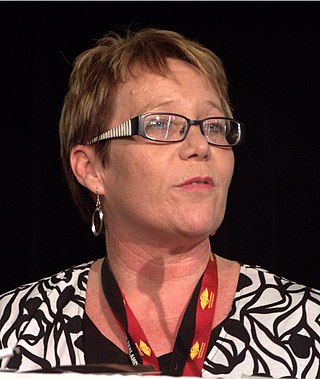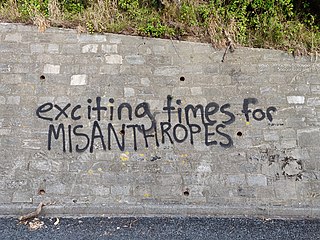Related Research Articles
The education system in New Zealand implements a three-tier model which includes primary and intermediate schools, followed by secondary schools and by tertiary education at universities and polytechnics. The academic year in New Zealand varies between institutions, but generally runs from early February until mid-December for primary schools, late January to late November or early December for secondary schools and polytechnics, and from late February until mid-November for universities.

Philip Bruce Goff is a New Zealand politician and diplomat. He currently serves as High Commissioner of New Zealand to the United Kingdom since 2023. He was a member of the New Zealand Parliament from 1981 to 1990 and again from 1993 to 2016. He served as leader of the Labour Party and leader of the Opposition between 11 November 2008 and 13 December 2011.

Children's Day is a commemorative date celebrated annually in honor of children, whose date of observance varies by country. In 1925, International Children's Day was first proclaimed in Geneva during the World Conference on Child Welfare. Since 1950, it is celebrated on June 1 in many countries. World Children's Day is celebrated on 20 November to commemorate the Declaration of the Rights of the Child by the UN General Assembly on 20 November 1959. In some countries, it is Children's Week and not Children's Day. The Sikhs celebrate Children Day on 20 December to 27 December. In the U.S., Children's Day is celebrated on the second Sunday of June.

Anne Merrilyn Tolley is a New Zealand politician and former member of the New Zealand House of Representatives representing the National Party. She was New Zealand's first female Minister of Education from 2008 to 2011 and the first Minister for Children from 2016 to 2017. During the Fifth National Government, she was also Minister of Social Development, Minister of Corrections, Minister of Police and Minister of Local Government. She served as Deputy Speaker of the House of Representatives from 2017 to 2020. She is currently the Chair of the Commission overseeing the Tauranga City Council, which was appointed after a review in 2020 identified significant governance problems within the council.

Social welfare has long been an important part of New Zealand society and a significant political issue. It is concerned with the provision by the state of benefits and services. Together with fiscal welfare and occupational welfare, it makes up the social policy of New Zealand. Social welfare is mostly funded through general taxation. Since the 1980s welfare has been provided on the basis of need; the exception is universal superannuation.

Santa Claus, also known as Father Christmas, Saint Nicholas, Saint Nick, Kris Kringle, or simply Santa, is a legendary figure originating in Western Christian culture who is said to bring gifts during the late evening and overnight hours on Christmas Eve. He is said to accomplish this with the aid of Christmas elves, who make the toys in his North Pole workshop, and with the aid of flying reindeer who pull his sleigh through the air.

New Zealand society is generally accepting of lesbian, gay, bisexual and transgender (LGBT) peoples. The LGBT-friendly environment is epitomised by the fact that there are several members of Parliament who belong to the LGBT community, LGBT rights are protected by the Human Rights Act, and same-sex couples are able to marry as of 2013. Sex between men was decriminalised in 1986. New Zealand has an active LGBT community, with well-attended annual gay pride festivals in most cities.

The Crimes Amendment Act 2007 is an amendment to New Zealand's Crimes Act 1961 which removed the legal defence of "reasonable force" for parents prosecuted for assault on their children.

The Carnival of Santa Cruz de Tenerife is held each February–March –depending on the year– in Santa Cruz de Tenerife, the capital of the largest island of the Canary Islands, Spain and attracts people from all over the world.

Crime in New Zealand encompasses criminal law, crime statistics, the nature and characteristics of crime, sentencing, punishment, and public perceptions of crime. New Zealand criminal law has its origins in English criminal law, which was codified into statute by the New Zealand parliament in 1893. Although New Zealand remains a common law jurisdiction, all criminal offences and their penalties are codified in New Zealand statutes.
Duncan Garner is a New Zealand broadcaster and journalist.

Phillip Mills is a former track and field athlete and businessman from New Zealand. He is the founder and executive director of Les Mills International and a co-founder of Pure Advantage, a green business lobby group.

Allen's, earlier A. W. Allen Limited, is an Australian brand of confectionery products produced by Nestlé. Allen's is the top brand of sugar confectionery in Australia. It is best known for Minties, a soft chewable mint-flavoured confectionery, and their varieties of 'Party Mix' lollies.

Tracey Anne Martin is a New Zealand former politician. She was a member of the New Zealand House of Representatives between 2011 and 2020, representing the New Zealand First Party.

Shane Raymond Reti is a New Zealand politician and a member of the New Zealand House of Representatives, and a Cabinet Minister with the roles of Minister of Health and Minister for Pacific Peoples, since 27 November 2023. He was first elected at the 2014 general election as the Member of Parliament (MP) for the Whangārei electorate. He is a member of the New Zealand National Party and served as its deputy leader from 10 November 2020 to 30 November 2021 including a period of five days as interim leader following the ousting of Judith Collins.

Nicola Valentine Willis is Deputy Leader of the National Party and Minister of Finance in a Coalition Government with ACT and New Zealand First. Willis entered the New Zealand Parliament in 2018, when she inherited Steven Joyce's seat in Parliament as the next on the party list after his retirement from politics.
There have been several COVID-19 protests in New Zealand held since 2020, where people protested the government's response to the COVID-19 pandemic in New Zealand, in particular the lockdown measures in place in March–May 2020, August 2020, and August–November 2021 and the later vaccine mandates. Most politicians both within and outside of Government and the vast majority of people have condemned these protests and view them as grandstanding by the organisers, and fear they may have spread the virus.

The COVID-19 pandemic in New Zealand has had far-reaching consequences on the country that went beyond the spread of the disease itself and efforts to eliminate it, including education, faith communities, Māori, mass gatherings, sports, recreation, and travel. In addition, there were several recorded cases of lockdown violations, leaks, and misinformation about the COVID-19 virus and vaccines.

COVID-19 vaccination in New Zealand began on 20 February 2021, and will continue throughout the pandemic with the goal of vaccinating all willing New Zealanders aged 5 or older. Those aged 5 to 11 require a parent, caregiver or legal guardian accompany them to their appointment and provide consent for them to be vaccinated. As of 1 September, anyone in New Zealand, regardless of their immigration status, is eligible to be vaccinated.

Susan Jane Grey is a political figure and environmental lawyer in Nelson, New Zealand. She is the co-leader of the NZ Outdoors & Freedom Party and of Freedoms NZ. She is known for promoting medicinal cannabis rights and opposing COVID-19 vaccination, 5G technology, and the use of 1080, frequently sharing misinformation on social media about the effectiveness of COVID vaccination.
References
- ↑ Stoianova, Inge (2015). "Pragmatics of New Zealand Vocabulary of Food". In Hometkovski, L. (ed.). Interconexiunea paradigmelor didactice şi metodologice în predarea limbilor străine (PDF) (5-a ed.). Chișinău, Republica Moldova: Universitatea Liberă Internaţională din Moldova. pp. 290–300. ISBN 978-9975-124-90-4 . Retrieved 13 January 2020.
- ↑ "Anniversary pic-nic". Bruce Herald. No. 347. 21 December 1870. Retrieved 13 January 2020.
- 1 2 3 4 5 6 7 8 Casey, Alex (12 January 2020). "The chaotic history of the lolly scramble in New Zealand". The Spinoff. Retrieved 13 January 2020.
- ↑ Howland, Peter (2004). Lotto, long-drops & lolly scrambles. Wellington: Steele Roberts. pp. 31–33. ISBN 1877228745.
- ↑ "Country News". New Zealand Herald. No. 9157. 25 March 1893. Retrieved 13 January 2020.
- ↑ "A parent's protest". Northern Advocate. 11 February 1935. Retrieved 13 January 2020.
- ↑ Dean, Jacqui; Barnett, Michael (August 2015). The loopy rules report: New Zealanders tell their stories: Rules Reduction Taskforce Report to the Minister of Local Government (PDF). p. 33. Retrieved 13 January 2020.